Kochi: Doctors at Kochi’s Aster Medcity are struggling to treat the victims of the Kalamassery bomb blast — several of them are refusing to accept blood transfusions because it goes against their religious beliefs.
The victims are members of the Jehovah’s Witnesses, the religious group that was the target of the 29 October attack, which killed three and wounded 50.
The accused, former Jehovah’s Witness Dominic Martin, claimed in a Facebook video that he was against the group because it perpetuated harmful beliefs. One such belief is their stance against transfusions, based on their conviction that life should not be sustained by the blood of other creatures.
An evangelical subsect of Christianity, Jehovah’s Witnesses often get a bad rap for their firm beliefs and zealous proselytising. But beneath the surface is a highly organised, deeply religious, well-oiled machine that preaches returning to the biblical text in case of any doubt.
They conduct themed prayer meetings, maintain strict codes of conduct, and adhere to a policy of political neutrality. Their way of life is closely guided by the principles in the Bible.
Witnesses also look to community elders to provide guidance and advice. After the blast, the India branch office sent out a list of instructions to members on how to support each other and attend gatherings virtually. Many from the India branch office have also visited the affected.
“Jehovah’s Witnesses worldwide grieve for the victims of this traumatic event and are praying for the victims’ families,” read the official statement of the Jehovah’s Witnesses Indian Branch after the blast. “During this time of tragedy, we are comforted by the Bible’s hope of a future when violence will no longer occur.”
The Jehovah’s Witnesses have had a presence in India for decades, with about 50,000 members nationwide. In Kerala, there are roughly 17,000 Jehovah’s Witnesses spread across 200 congregations. Around 2,000 of these congregants had gathered at the Zamra Convention Centre in Kalamassery, Kochi, for a three-day convention last week. The theme was “living with patience”.
On the third day, at around 9.30 a.m., the attendees had their eyes closed in prayer when three consecutive blasts shattered the serenity of the moment.
An eyewitness told ThePrint that something that looked like a “tiffin-box bag” had gone off under plastic chairs.
“It took us time to react. Initially, we thought it was a short circuit, but then we saw the black smoke and smelled the burning,” said Prakash, a 30-year-old systems engineer who was present at the site.
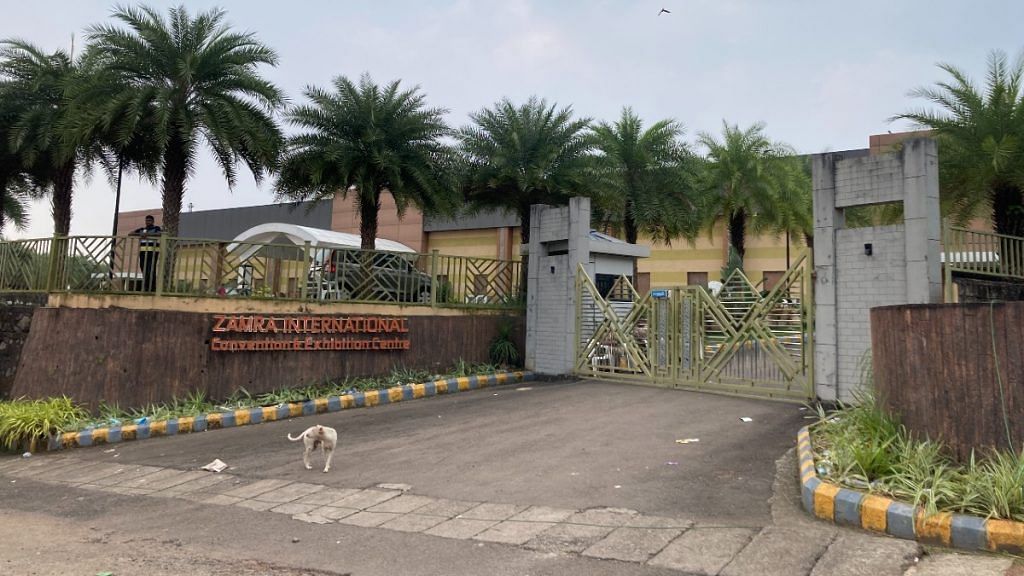
But even when the gravity of the situation sank in, there was no “overpanic” at the scene, he added. “I think that’s why there were fewer casualties.”
Kochi MP Hibi Eden also noted the exceptional level of organisation at the gathering, and said that the congregants followed an evacuation plan — a general protocol they’d already discussed at the start of the convention.
“I’ve been to many calamities and disaster sites — usually there are emotional outbursts or resentment expressed towards government officials. But in this case, they were an extremely composed crowd,” said Eden. “There was no anger from the victims and their families, which is quite unusual.”
Also Read: ‘Unassuming English teacher, recluse’ — inside the world of Kerala bombing suspect Dominic Martin
Organised, streamlined, and global
Jehovah’s Witnesses typically hold their worship gatherings in assembly halls known as Kingdom Halls, rather than traditional churches. Since the Sunday bomb blast, physical prayer meetings across Kerala, Tamil Nadu, and Karnataka have been called off over fears of violence.
However, the community has adapted so that they can still share in midweek prayers. Zoom links have been shared in the WhatsApp groups of all the congregations for members to join.
The theme of this week’s prayers is “Treasures from God’s Word”. It’s the same theme for Jehovah’s Witnesses across the world. There’s even an app to keep things streamlined.
Prakash opens the Jehovah’s Witness Library app on his phone to check the schedule, toggling between Malayalam and English on the user interface. The app supports over 522 languages to reach Witnesses all over the world, including separate English dialects for countries like Liberia.
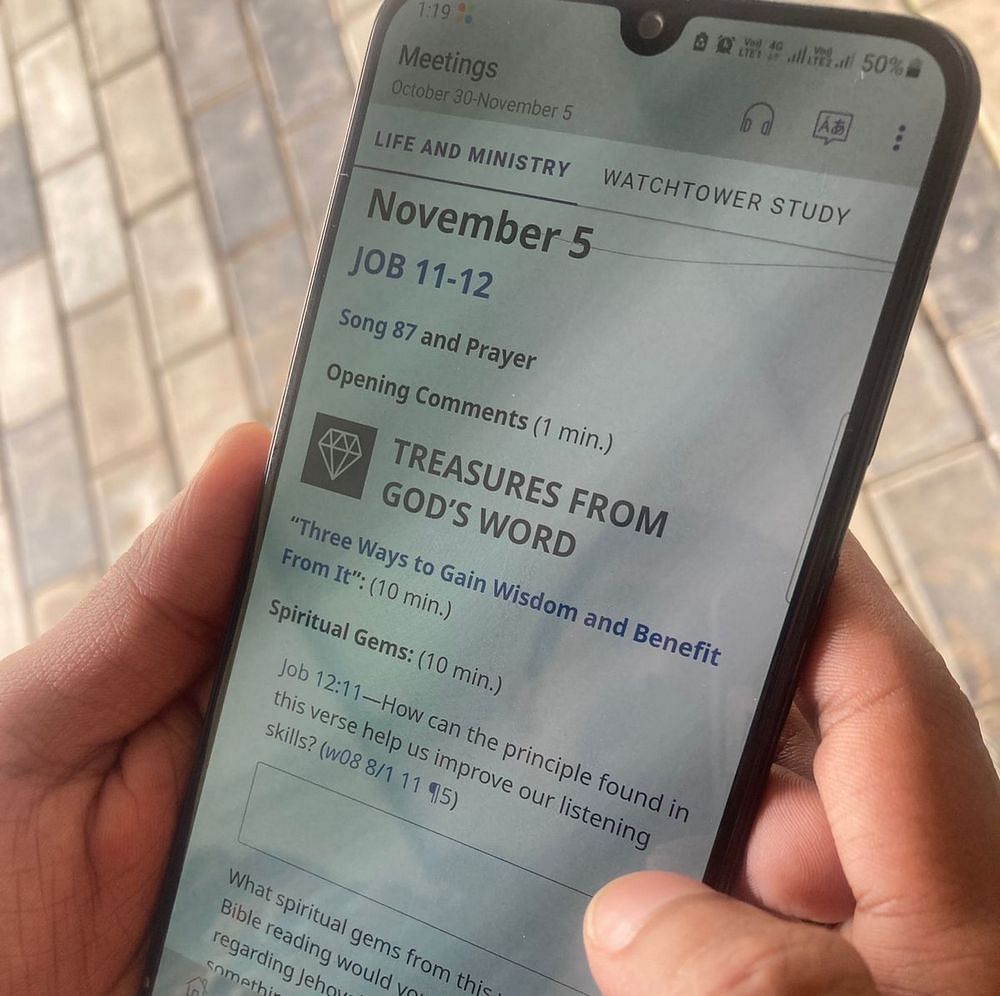
“Just looking at the range of languages on the app makes me feel I have a strong community. Wherever I go in the world, if I need help, Jehovah’s Witnesses will come running to help me,” said another Witness, Anna. “We don’t discriminate, because we are all God’s children.”
The schedule is simply displayed with prompts for Witnesses to reflect on their beliefs and actions.
There are two weekly meetings at Kingdom Halls, one midweek and one on the weekend. Midweek meetings are typically from 5pm to 8pm. The timing of weekend meetings varies by congregation, and Witnesses are free to attend the gathering that best fits their schedule. For instance, the congregations of Aluva and Kalamassery share the same Kingdom Hall building, and schedule their prayer meetings separately for members of both congregations to be able to attend.
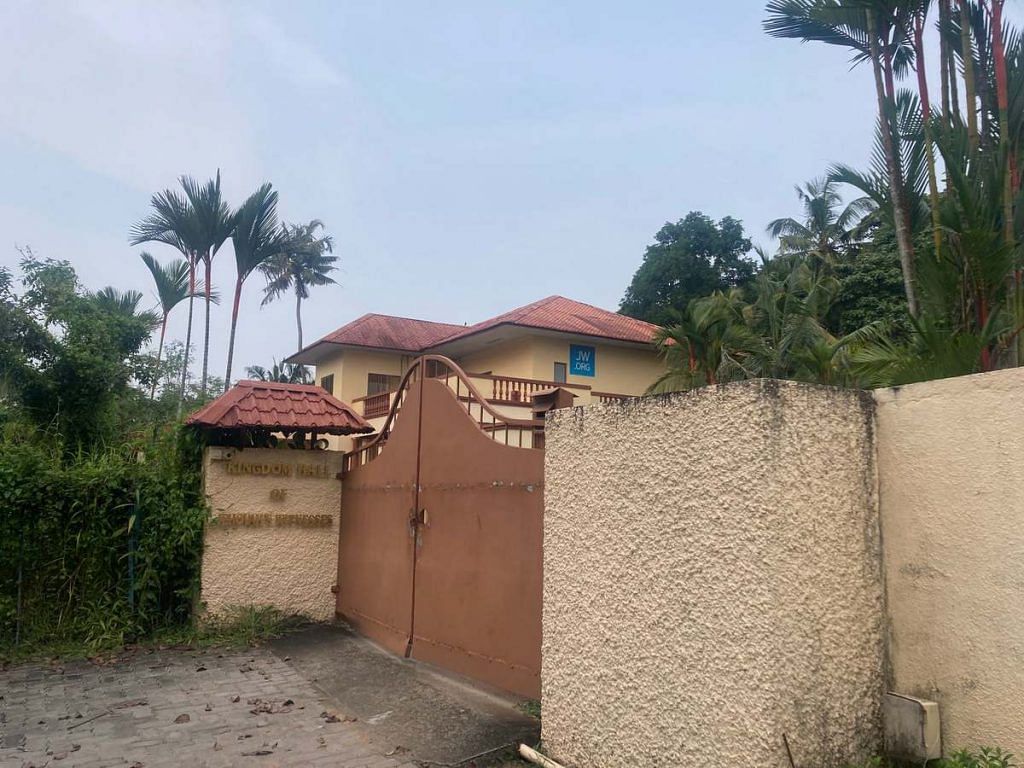
The priority is not prayer, but teaching the Bible. Each meeting opens with a short song and prayer, after which an elder delivers opening remarks on the theme for the week. Then the witnesses talk about their interpretation of the selected Bible verse, and how they apply it to their life.
“The Bible teaches us to live correctly and lawfully. That’s all we’re saying — it’s not that we don’t follow the rules of society. When these rules conflict with our beliefs, then we prioritise what the Bible teaches us,” said Prakash. “We don’t force others to follow our beliefs, so what’s the problem?”
The strictures include refraining from idolising celebrities or the nation-state since worship should be restricted to God, and not celebrating “pagan” festivals like Christmas, which has no biblical basis.
Prakash has been a Jehovah’s Witness almost his entire life. His parents joined the community when he was a year old and it’s the only way of life he has known.
He says he has never faced any discrimination on account of his religion. His friends and colleagues accept his rules as an expression of his religious freedom. He tries to meet them halfway too. For example, Prakash will not participate if someone throws him a birthday party, but he doesn’t object to the celebrations either.
Prakash clarifies that while he will not accept blood transfusions, he will not turn down good medical care and treatments.
Notably, a private hospital in Bengaluru claimed in January 2020 that it performed a liver transplant on a Nigerian Jehovah’s Witness, but did not transfuse blood out of respect for his religious beliefs.
Sticking to the Bible
Jehovah’s Witnesses have been present in India since 1905, but only got legal registration in 1978.
This registration came a year after the Supreme Court made a clear distinction between spreading one’s religion and converting others. Many Jehovah’s Witnesses have been accused of converting others to their religion, though they largely worship peacefully and without incident. In a landmark 1986 case, the Supreme Court held that they had the right to their own beliefs.
The Jehovah’s Witnesses community transcends class boundaries. It appeals to deeply religious Christians who prefer to be guided by their religious text — and not by figures like priests.
Poly P, a tailor based in Angamaly, studied the Bible for over a decade before he was inducted into the Jehovah’s Witnesses two years ago. It took years of study and effort before he could call himself a Witness, he said.
Poly was at the Zamra Convention Center with his family when the blasts happened. His family, in fact, was the reason why he joined the Jehovah’s Witnesses
His wife, a school teacher, had become sceptical of what her local priest was preaching. She’d take classes at the church but often found herself unable to answer religious questions satisfactorily.
After several meetings and discussions with various people in the extended church community, she met a Jehovah’s Witness. Shortly after, she joined the group and began to raise their two daughters as Witnesses as well.
“What is preached in Church doesn’t often match the Bible,” said Poly. He, too started questioning his beliefs and turned to the Biblical text for guidance. After learning more about the Witnesses from his wife and daughters, he decided to formally join.
“You can’t become a Jehovah’s Witness overnight,” he said. “It’s a committed way of life and we understand it’s not for everybody. But there’s no forcing involved,” he stressed.
Poly said he’d never met accused Dominic Martin, who had reportedly been asked to leave the congregation some years ago,
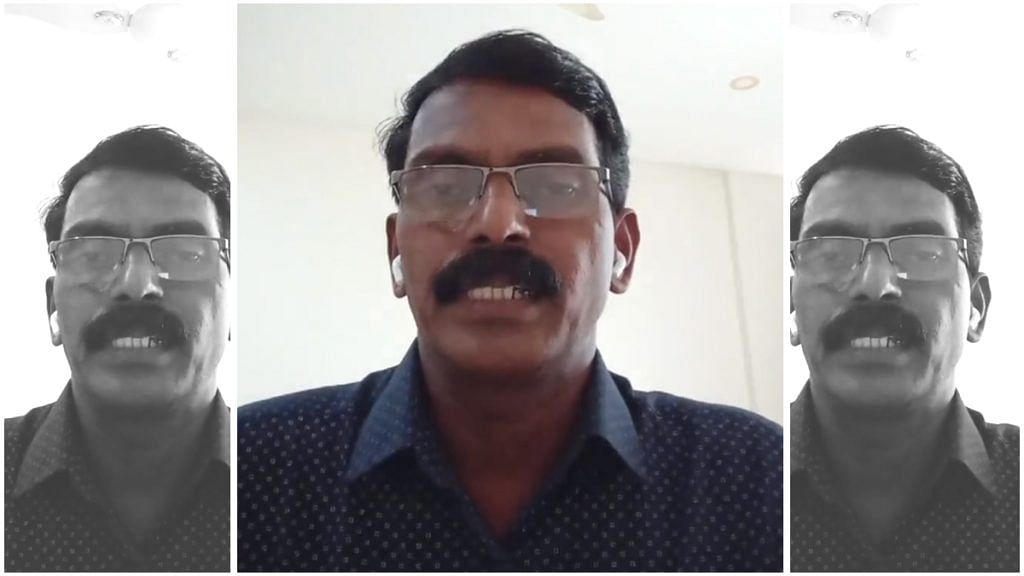
“People can repent and rejoin the congregation — everyone makes mistakes, but it takes time and energy to correct these mistakes. But [Martin] did not make such an effort. Instead, he took such a drastic step,” he said. Poly claimed he did not know why Martin had been asked to leave.
A famous case of a Jehovah’s Witness being expelled is Michael Jackson. During his early fame, he was a devout member who engaged in door-to-door evangelism. He was reportedly asked to leave the sect in 1987 because many in the community objected to the “occult” theme of his music video for the hit ‘Thriller’. The video shows him transforming into a monster.
‘We don’t blindly follow rules’
The blast has rattled Jehovah’s Witnesses in Kerala, but most in the community view it as a result of Martin’s “psychological problems” rather than a greater threat.
An eyewitness at the blast site said that if Martin had remained in the community, they would have likely helped him untangle his thoughts, and that the Bible has the answer.
In his confession video posted to Facebook, Martin claimed that the group practiced “anti-national” activities which he wanted to rectify. He also said that he had repeatedly tried to engage with the group and get them to change their views.
“Our theme for the three-day convention was living with patience,” said Poly. “Isn’t it ironic? Martin could have benefitted from it!”
The Jehovah’s Witnesses decided to temporarily stop meeting at Kingdom Halls on their own, without any such direction from the government, according to a member. Other than this, they continue to go about their daily lives and are focusing on extending care to those affected by the blast.
“Someone who has studied the Bible and understood Jehovah’s Witnesses wouldn’t have done this,” said Prakash. “We’re a peaceful community, and we don’t blindly follow rules — we do what is best for us and for God.”
(Edited by Asavari Singh)
Also Read: Kerala blast suspect ‘remorseless’, wanted to ‘expose activities of Jehovah’s Witnesses’


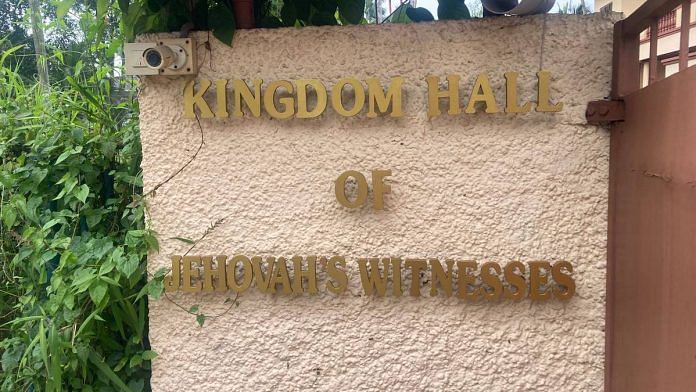

Jehovah’s Witnesses and their spokesperson Joshua David say: ‘Everything is personal decision, each individual has to decide whether they want to follow that or not”. The Jehovah’s Witnesses themselves are as GUILTY as the terrorist who committed these crimes. The Jehovah’s Witnesses leaders give their members a fake sense of freedom and freewill as everyone knows birthdays and accepting blood IS NOT a mere matter of personal decision. The consequences of celebrating birthdays or accepting blood are being expelled and shunned by every Jehovah’s Witness, which in the case of many means, being shunned by family, friends and their whole circle as Jehovah’s Witnesses also look down on any member who has any relationship or friendship with anyone who’s not a member of the organization. These people need to make radical changes in their doctrine as it has been already labeled in Spain as a ”destructive cult”. Instead of just interviewing them and taking anything they say as true, research a little and you will see it’s not hard to see the real true about the Jehovah’s Witnesses cult.